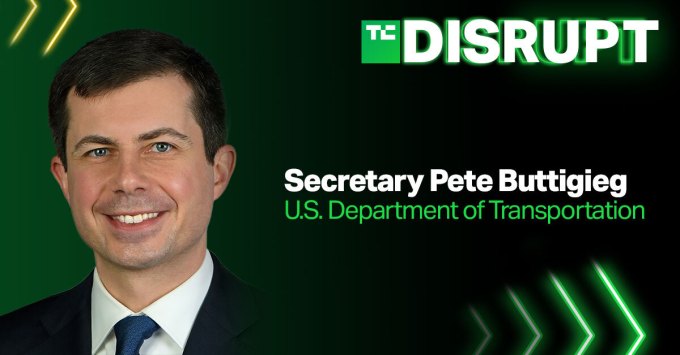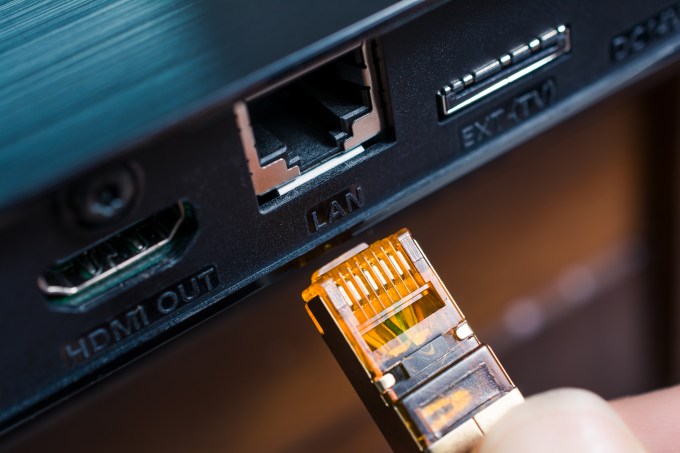| |
| Hello and welcome to Daily Crunch for July 22, 2021. Today we have a lot of news for you, but with a notable twist. Normally we have lots of startup news and a few notes from Big Tech companies. Today we have a lot from both, so strap in. Also, U.S. Secretary of Transportation Pete Buttigieg is coming to Disrupt. Because TechCrunch covers the worlds of micromobility, mobility proper and the future of transit, we have a few questions for the man. — Alex Read More | |  Image Credits: U.S. Department of Transportation | | |
The TechCrunch Top 3 - Gopuff is raising again: TechCrunch broke the news today that Gopuff, the SoftBank-backed delivery company, is raising more capital. Our sources say $1 billion at around a $15 billion valuation. Axios confirmed the news. The potential funding will follow in the wake of lots of capital raised for instant-delivery grocery around the world.
- Canada's venture capital market is hotter than the sun: TechCrunch's exploration of the global, U.S, Indian, European and Latin American startup markets continued today with a look at North North America. It turns out that Canadian startups are enjoying one hell of a year when it comes to landing big venture rounds.
- The internet went down. Here's why: Akamai's DNS system hit a pothole today, taking down a pretty big chunk of the internet. Lots of stuff broke, including the Couchbase website right as your humble servant was prepping to chat with its CEO about its recent IPO (more here). Things are back to normal now, but don't forget that the internet is not a series of tubes. It's a series of leaky tubes held together with duct tape.
| |  Image Credits: Devenorr / Getty Images | | |
| |
Startups/VC Let's talk about startups. Today we have everything from passwordless tech to new venture funds and a robotics roundup. But if you need even more, here's Greylock's Mike Duboe explaining how to define growth and build your team. - Mindtech raises $3.25M for synthetic human watching: No really, that's what it does. The U.K.-based company's service wants to train CCTV cameras on digital humans, saving customers from knotty privacy issues. This is one of those times when venture capital dollars appear to be flowing to an actually kinda wild idea?
- Sendlane wants you to spend more: Sendlane, now flush with $20 million in new capital, wants to help its customers use data on their customers to help keep shoppers loyal and spend more. I would call this slightly creepy but then I would sound like the luddite that I am.
- All Raise launches virtual bootcamp for women and nonbinary founders: As venture funding races to new heights, it's not landing everywhere equally. In fact, some data sources indicate that VC is actually getting less diverse this year. All Raise wants to push back on that by helping more founders other than folks who look like me raise capital. Good.
- Magic raises $27M to get rid of passwords: Magic, a startup that will spend its life trying to live up to its name, just raised a huge amount of money to pursue its vision of a less password-focused future. Its tech allows developers to "implement a variety of passwordless authentication methods with just a few lines of code," TechCrunch reports.
- What has a five-letter name and 3 billion more dollars? Sadly, it's not you or me. It's Index! The venture capital firm has put together new funds worth just under $3 billion, a big chunk more money than it raised, er, a year ago. Hot Startup Summer is being made possible by Hot Zero Interest Rate Policy Decade, which in turn is helping fuel Hot Bored Cash Season, leading to every venture capital firm raising enough money to cause their GPs to lose sleep. Fun!
And for your robotics fans out there, TechCrunch has a new digest from the industry here. Enjoy! | | | |
| Thanks to sprawling fulfillment centers, seamless logistics networks and ubiquitous internet access, consumers in many regions now order groceries and a new set of cookware during breakfast and can reasonably expect everything to arrive in time for dinner. In Latin America, a lack of technology infrastructure makes delivery operations less complex — products are delivered from a retailer’s loading dock to a customer’s front door — but these supply chains are often managed with spreadsheets, paper and pen. Algorithms that manage delivery routes or automatically dispatch drivers “are almost unheard of in the Latin America retail logistics sector,” says Bob Ma, an investor at WIND Ventures. But thanks to growing consumer demand and expanding investment in last-mile delivery startups, Ma says the region is at a turning point. Since Latin America’s middle class has grown 50% in the last decade and e-commerce constitutes just 6% of all retail, several unicorns have emerged in recent years, with more waiting in the wings. (Extra Crunch is our membership program, which helps founders and startup teams get ahead. You can sign up here.) Read More | |  Image Credits: Erlon Silva/TRI Digital / Getty Images | | |
Big Tech Inc. Let's start with transportation news and then talk about the rest of Big Tech. Daily Crunch asked TechCrunch transportation guru and generally sterling person Kirsten Korosec just why there was so much news today from her beat. "I have no idea why, just make it stop," she joked, before adding that she "can say that with so many automakers making commitments to move to all electric lines, we can expect more announcements about how they plan to ensure they have battery capacity and other raw materials." Here's the news: - Rivian sets sights on second factory: Fresh off production delays, EV company Rivian is planning for the future in the form of another factory. The company admitted to being in the process of looking for a second plant. Our read? This electric car thing is not slowing down.
- Speaking of which, Tesla will source nickel directly from commodity production giant BHP. It's going to be the Hunger Games out there for the raw materials needed for electric cars if the market evolves as it is expected to. Tesla wants to make sure it doesn't lack supplies.
- How much demand are we talking about? Well, Mercedes is going to build eight — eight! — battery plants. Now that we've read the news, the idea makes sense, but it still made us sit up and consider its implications. The days of the internal combustion engine are coming to an end.
- Uber buys Transplace for $2.25B: Rounding out our mobility rundown, Uber is making moves with its checkbook, this time buying Transplace, a digital logistics company, for a few billion. The effort will fit into Uber's larger freight aspirations. The company has said that it intends to reach adjusted profitability this year.
- Meanwhile, Waymo announced it is opening an office in Pittsburgh, where it will certainly put even more pressure on an already competitive talent recruiting process.
And from the rest of the world of giant tech companies: - Spotify and Giphy team up: Er, have you wanted GIFs in your music player? Well, good news if so: Spotify has "a new partnership with online GIF database GIPHY to enable discovery of new music through GIFs." Cool?
- Microsoft buys CloudKnox: Microsoft's push to provide cash returns to every cybersecurity-focused venture capitalist continued today, with the Redmond-based software giant buying CloudKnox. It's the fourth deal this year for a smaller cybersecurity-focused startup from Microsoft.
- Visa buys Currencycloud: Visa, likely still stinging slightly from its inability to buy fintech API provider Plaid, is busy buying other companies. This time it's Currencycloud, which builds other fintech APIs. Jokes aside, the deal will bring the smaller company's remittance and currency-transfer tech into Visa for just under $1 billion.
| | | |
TechCrunch Experts: Growth Marketing We're reaching out to startup founders to tell us who they turn to when they want the most up-to-date growth marketing practices. Fill out the survey here. Read one of the testimonials we've received below! Marketer: Adam DuVander, EveryDeveloper Recommended by: Karl Hughes, Draft.dev Testimonial: "In addition to writing a book on developer marketing, Adam draws from deep experience as a developer and developer advocate to make sure his clients set a winning strategy in motion." | |  Image Credits: SEAN GLADWELL / Getty Images | | |
| |
Newest Jobs from Crunchboard | | | | |
| |
| |







No comments:
Post a Comment
Note: Only a member of this blog may post a comment.